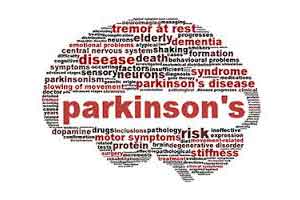- Home
- Medical news & Guidelines
- Anesthesiology
- Cardiology and CTVS
- Critical Care
- Dentistry
- Dermatology
- Diabetes and Endocrinology
- ENT
- Gastroenterology
- Medicine
- Nephrology
- Neurology
- Obstretics-Gynaecology
- Oncology
- Ophthalmology
- Orthopaedics
- Pediatrics-Neonatology
- Psychiatry
- Pulmonology
- Radiology
- Surgery
- Urology
- Laboratory Medicine
- Diet
- Nursing
- Paramedical
- Physiotherapy
- Health news
- Fact Check
- Bone Health Fact Check
- Brain Health Fact Check
- Cancer Related Fact Check
- Child Care Fact Check
- Dental and oral health fact check
- Diabetes and metabolic health fact check
- Diet and Nutrition Fact Check
- Eye and ENT Care Fact Check
- Fitness fact check
- Gut health fact check
- Heart health fact check
- Kidney health fact check
- Medical education fact check
- Men's health fact check
- Respiratory fact check
- Skin and hair care fact check
- Vaccine and Immunization fact check
- Women's health fact check
- AYUSH
- State News
- Andaman and Nicobar Islands
- Andhra Pradesh
- Arunachal Pradesh
- Assam
- Bihar
- Chandigarh
- Chattisgarh
- Dadra and Nagar Haveli
- Daman and Diu
- Delhi
- Goa
- Gujarat
- Haryana
- Himachal Pradesh
- Jammu & Kashmir
- Jharkhand
- Karnataka
- Kerala
- Ladakh
- Lakshadweep
- Madhya Pradesh
- Maharashtra
- Manipur
- Meghalaya
- Mizoram
- Nagaland
- Odisha
- Puducherry
- Punjab
- Rajasthan
- Sikkim
- Tamil Nadu
- Telangana
- Tripura
- Uttar Pradesh
- Uttrakhand
- West Bengal
- Medical Education
- Industry
New Cellular Defect in Parkinson's Disease Identified

NEW YORK: Researchers have discovered a previously unknown cellular defect in patients with Parkinson's disease, and identified a sequence of pathological events that can trigger or accelerate premature death of certain neurons in the brain seen in this disease.
The discovery may lead to early diagnosis and a possible cure of Parkinson's disease, which is a neurodegenerative disorder that affects movement and other vital functions of affected people.
Despite advances in understanding the causes of familial forms of this disease, the most prevalent idiopathic form of Parkinson's disease remains a mystery.
In this study, the researchers discovered that the cells of people with idiopathic Parkinson's disease have a previously unknown defect in the function of a specific PLA2g6 protein, causing dysfunction of calcium homeostasis that can determine whether some cells will live or die.
"Idiopathic or genetic dysfunction of calcium signaling triggers a sequence of pathological events leading to autophagic dysfunction, progressive loss of dopaminergic neurons and age-dependent impairment of vital motor functions typical for Parkinson's disease," explained corresponding author Victoria Bolotina, professor of medicine at Boston University School of Medicine in the US.
"Discovery of this new mechanism associated with human Parkinson's disease and our ability to mimic this pathology in a novel genetic model opens new opportunities for finding a cure for this devastating neurodegenerative disease," she noted.
Next Story


